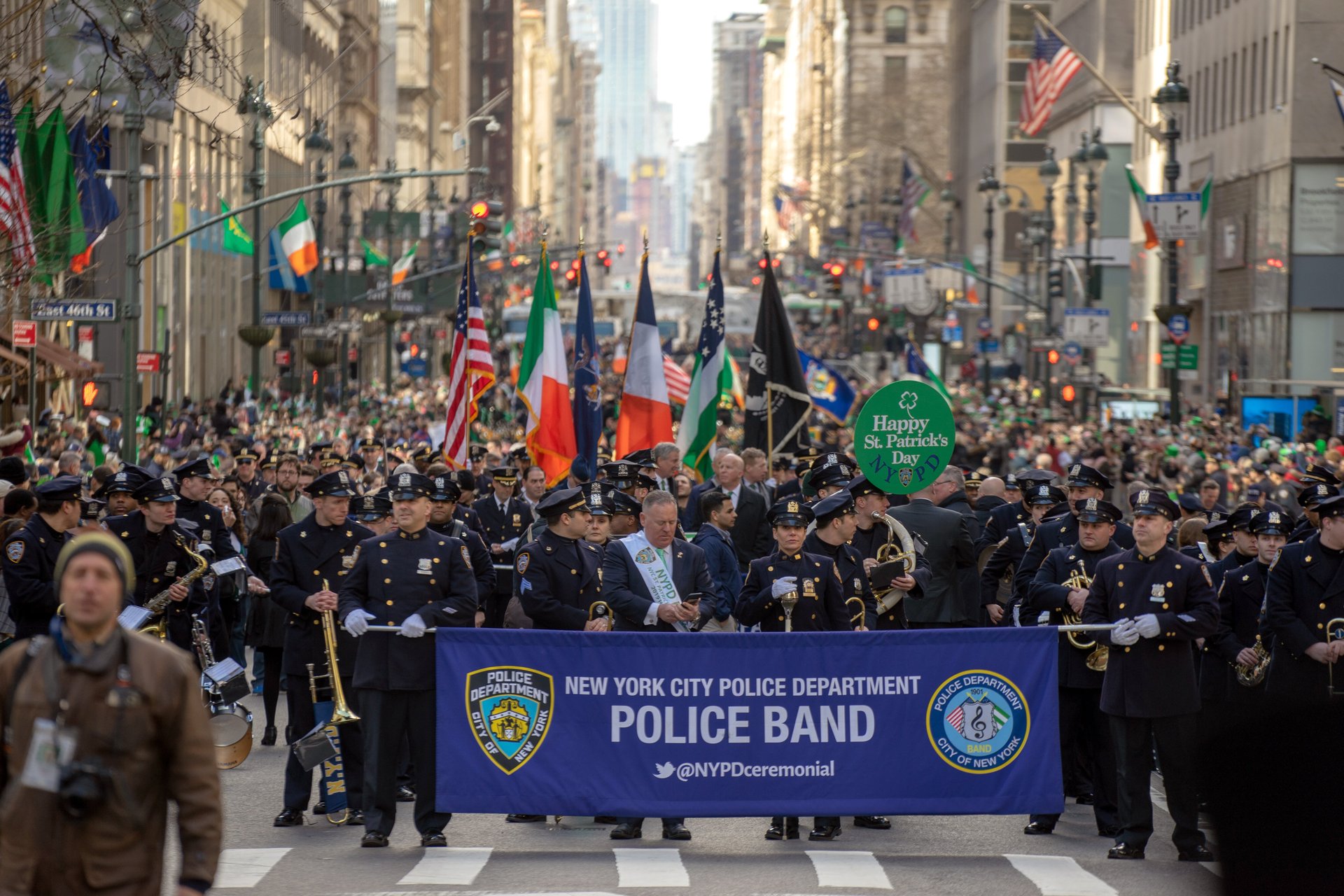Why is St. Patrick's Day such a big holiday in the US?
The answer has something to do with potatoes—and politics

If you go for an afternoon stroll around the streets of Chicago, Boston, or New York City on the weekend of St. Patrick’s Day, you should be prepared for crowds of revelers, likely wearing green with a Guinness in hand. This party atmosphere belies the political nature of both the holiday and the mass immigration of Irish people to the US.
Suggested Reading
The annual celebration of St. Patrick’s Day has become tradition across the US, mainly due to the massive number of Americans with Irish roots. More than 1 in 10 people in the US have ancestors who left Ireland, including US president Joe Biden, who proudly proclaims his ties to Ireland.
Related Content
The vast majority of Irish immigrants to the US left during the great potato famine, fleeing a period of starvation and disease that lasted from 1845 to 1852 and killed more than 1.9 million people. During the same span of time, roughly a quarter of the country left in what is considered one of the largest exoduses in history.
The famine was due to potato blight—a fungus that caused the degeneration of potato crops across the country, which was essentially the only crop Irish farmers could grow. Because of British rule, the Irish had little say over what they grew, and the British demanded they cultivate a single cash crop, despite potatoes not being native to Ireland.
Additionally, the British kept exporting the potatoes that did survive out of Ireland, despite mass starvation. In 1997, Tony Blair, the former prime minister of the UK, apologized for his country’s lack of action during the famine.
In the decades following the famine, the Irish spread to every corner of the globe. Now, the Irish government estimates there are more than 70 million people in the world with Irish heritage, compared to only 5 million people who actually live in Ireland (close to 7 million if you include Northern Ireland).
What is St. Patrick’s Day celebrating?
Traditionally, St. Patrick’s Day celebrates the life of St. Patrick, the patron saint of Ireland, marking the anniversary of his death in the fifth century. The Irish have observed the holiday for well over 1,000 years.
Occurring during Lent—the 40-day season of Christian observation leading up to Easter, which highlights sacrifice and fasting—St. Patrick’s Day was historically celebrated by suspending Lenten prohibitions on meat. Families would often gather to eat a traditional meal of cabbage and bacon.
The holiday evolved when Irish-Americans decided to reject rampant prejudice in the 19th and early 20th centuries by throwing loud and ostentatious parties to celebrate their heritage.
In recent decades, St. Patrick’s Day has become a global celebration of Irish culture. The National Retail Federation estimates that American consumers will spend almost $7 billion during the 2023 holiday. While it is still considered a way for members of the Irish diaspora to connect with their heritage, it has also become an opportunity for everyone else to hit the pubs and enjoy a pint, pick up a Shamrock Shake, prepare corned beef and cabbage, or perhaps restart a perpetually unfinished copy of Ulysses.
The Irish Diaspora has exported traditions around the world
The most famous Irish-American is probably former president John F. Kennedy. The most famous Irish-American living today is current president Joe Biden, the second Irish-Catholic to be elected to the office. Biden often speaks warmly of his mother’s close-knit Irish family.
And Biden has not been shy about politicizing this heritage, famously rejecting a BBC reporter angling for an interview, saying “The BBC? I’m Irish!”
Biden will celebrate his heritage this year by hosting the Irish Taoiseach (or “leader” in Gaelic) Leo Varadkar for a St. Patrick’s Day celebration at the White House, restarting a tradition interrupted by the pandemic.
He will also visit Northern Ireland for the 25th anniversary of the Good Friday Agreement in April, the peace treaty that stopped decades of civil war between Protestants and Catholics. Biden personally reached out to British Prime Minister Rishi Sunak last month, telling him to prioritize keeping an open border between Ireland and Northern Ireland during post-Brexit trade negotiations. Free travel between the two countries was an essential stipulation of the peace treaty.
Related stories
🇬🇧 The UK and the EU have reached an agreement on Northern Ireland
